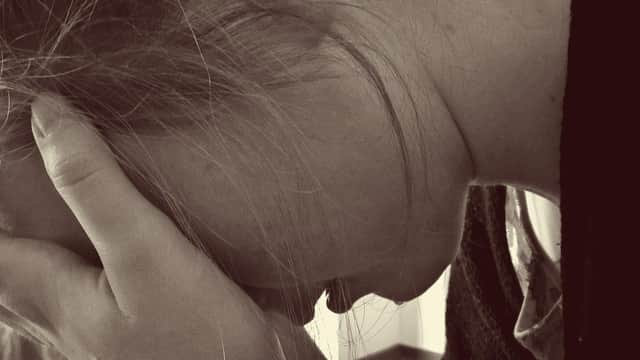Lifting the lid on poverty in South Tyneside - and the tales of hardship in the borough's 'covid mailbox'


It comes as the impact of the pandemic makes life even harder for vulnerable households in the borough, with a dedicated ‘covid mailbox’ laying bare just some of the hardship facing families and people living alone.
South Tyneside Council’s People Select Committee have carried out several commissions in the past, which aim to drill down into issues affecting the borough’s residents.
Advertisement
Hide AdAdvertisement
Hide AdNow the scrutiny panel have set their sights on poverty, with a view of making some recommendations to the council’s ruling cabinet by Christmas.
The scope of the commission covers a range of topics – from wages and access to healthcare to transport and the impact of Covid-19.
Councillor John McCabe, chair of the People Select Committee, said the panel are looking to act quickly as “poverty is a subject which will not wait.”
Councillors discussed the commission and its future aims at a meeting on Tuesday, November 24, which was held via videolink and broadcast on YouTube.
At the meeting, council public health officers noted existing issues around deprivation in the region and the links between income, poverty and health outcomes.
Advertisement
Hide AdAdvertisement
Hide AdCouncillors were also given an insight into the impact of Covid-19 on the borough’s residents, businesses and schools in recent months, through ‘real-life scenarios’ gathered by the council’s ‘Covid-19 mailbox.’
The mailbox is used to provide guidance and clarification to residents on Covid-19 issues while also gathering local intelligence.
Cases ranged from people losing pay after being forced to self-isolate, to families struggling to heat their homes.
Many hospitality businesses were also affected by tighter Covid restrictions, workforce issues and temporary closures.
Advertisement
Hide AdAdvertisement
Hide AdOther potential groups who were “more affected than others” included families and single parents with more than one child and those who are “steps away from a crisis” with no means of accessing support.
“Covid has kind of amplified the issue of what’s already there, issues around neglect, reliance on substance misuse and domestic abuse,” said public health officer, Sam Start.
“But it’s also forcing people to make really stark choices as to whether they can afford to heat their home or buy food.
“One of the positive things we have seen is that our schools can be a real protective factor around children.”
The public health officer added: “In terms of the Covid-19 mailbox, it’s just flagged up to us that probably education and children’s social care teams need to be part of that poverty agenda which we may not have necessarily thought of before Covid.”
Councillors also received a presentation on research from Newcastle University looking at geographical inequalities in health and wages.
The study found that the regional health divide has been widening in recent years and that the pandemic was the ‘tipping point’ for many families at the edge, with rising levels of child poverty and food poverty.
It also looked at the impact of austerity and the impact of poor health on the productivity gap between the North and the rest of England.
As part of the study, several recommendations were made to both central government and local and regional stakeholders.
Local actions included councils, local enterprise partnerships and health partners “scaling up” family centred public health programmes to “invest more in interventions that reduce social and environmental inequalities.”
Other suggestions included the development of locally ‘tailored’ programmes for young people – providing both health and employment support – and coordinated responses between local health services to identify at risk families and individuals.
Advertisement
Hide AdAdvertisement
Hide AdCouncillors on the People Select Committee said that some of the study’s recommendations could be replicated in South Tyneside through the commission.
Councillor David Francis also called for Universal Basic Income to be discussed at a future session and said that engaging with schools was a key part of addressing the impact of poverty on children and young people.
Meanwhile, councillor Pat Hay said that voluntary and partner organisations “working flat out in communities to support residents” should be included in the commission.
The People Select Committee will continue to meet to discuss the poverty agenda before agreeing on recommendations to cabinet.
Future topics include, but are not limited to:
:: Universal credit / welfare advice
:: Use of food banks
:: Fuel Poverty
:: Period Poverty
:: Digital Poverty
:: Access to healthcare / affordable transport
:: Support for carers
:: The impact of Covid-19